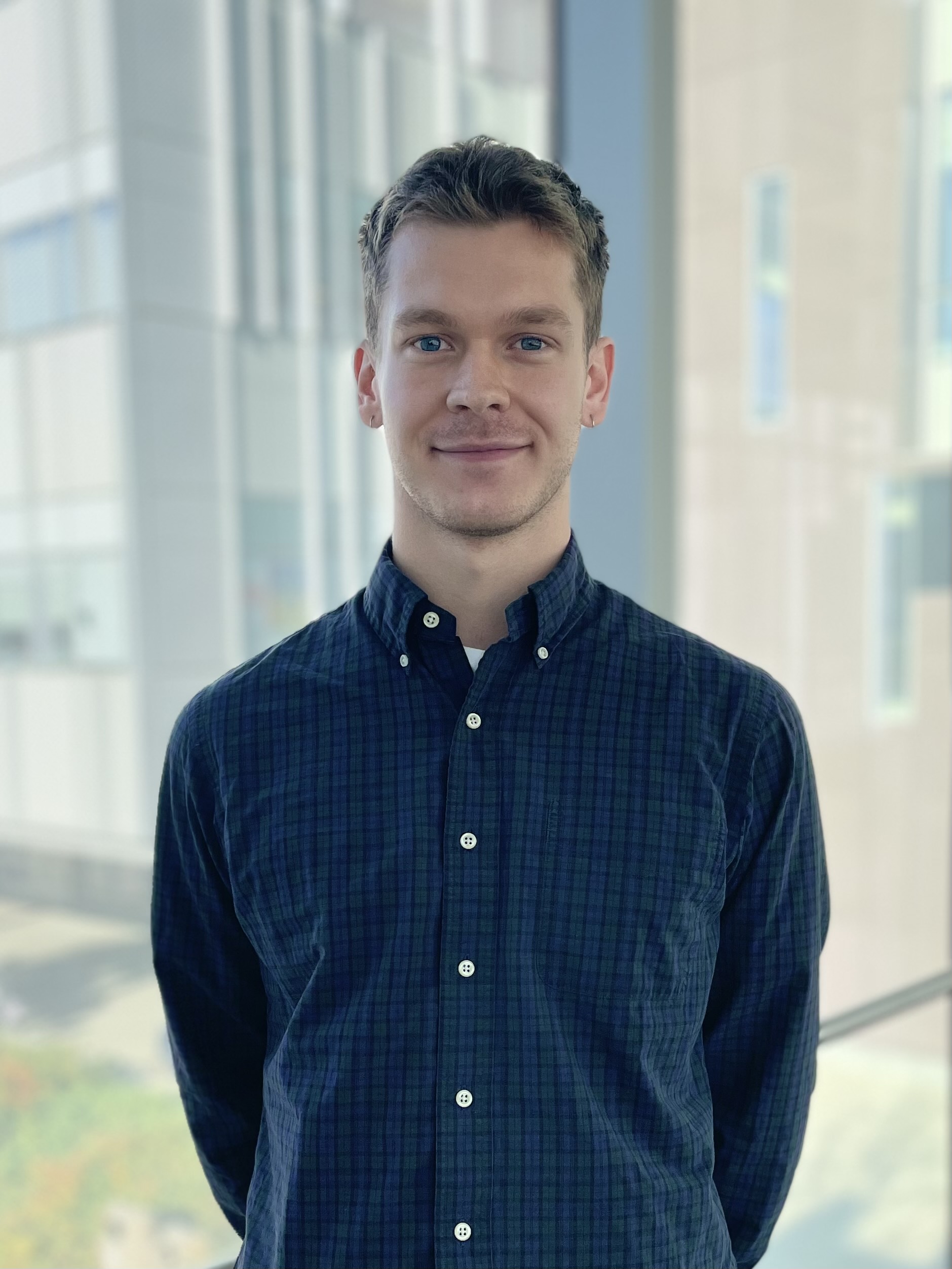CUP Graduate Student Equity Award Profile: Luc Sauze
27 March 2023

“Cliché as it sounds, I love giving back, and I want my research to be authentic and for the benefit of communities. Thanks to the CUP award, I’ve found a way to make that happen.”
This article is part of a series highlighting the recipients of the Graduate Student Equity Award offered by the Community-University Partnership (CUP) in the School of Public Health. The award supports graduate students pursuing community-engaged research and is made possible with funding from the Suncor Energy Foundation.
Luc is a first-year MSc student in the School of Public Health focusing on epidemiology. Under the supervision of Dr. Roman Pabayo, Luc is part of the research team at the Epidemiological Methods for Equity Research to Generate Evidence (EMERGE) lab, which takes an interdisciplinary approach to exploring various social and economic determinants of health. Luc’s strong volunteering background has also prepared him to make the most of community-based research opportunities available through the School of Public Health.
During his undergraduate degree in medical science at Dalhousie University, Luc tailored his coursework toward learning about determinants of health and thinking about health from a sociological perspective. Upon returning to Edmonton, he began volunteering with drop-in services at The Mustard Seed, giving him a chance to reflect on the importance of listening to people’s lived experiences and deepen his understanding of community health.
Luc is currently doing a graduate research assistanceship (GRA) with the Centre for Healthy Communities (CHC), where he is helping develop policy briefs on neighbourhood health and social cohesion. This requires working closely with what the centre calls “CHC Practice Affiliates,” which includes provincial or community representatives or people who work directly with communities. It also includes stakeholders from the City of Edmonton and Alberta Health Services, among other organizations. Luc describes the CHC’s approach to community research as a highly collaborative process and a mutual learning opportunity.
Even as a busy graduate student, Luc remains a dedicated volunteer. In his spare time, he coaches the para-swim team through the University of Alberta’s Steadward Centre for Personal & Physical Achievement as well as a separate able-bodied club for children. As a testament to both his dedication and his busy schedule, he is also training for a Half Ironman.
Luc says the CUP Graduate Student Equity Award provides him and other students a unique opportunity because it emphasizes the value of each student’s lived experiences rather than only their academic history or C.V.
“I have a lot of experience with communities, and I have a perspective that can bring something important to research and the institution. However, I don’t currently have a lot of ‘traditional’ markers of academic success, like publications, that funding agents often look for.
“What I appreciated a lot was that the application was so holistic. It looked at the whole person. And, honestly, it has given me the ability to exist in this space, which I probably couldn’t have done otherwise. Cliché as it sounds, I love giving back, and I want my research to be authentic and for the benefit of communities. Thanks to the CUP award, I’ve found a way to make that happen.”
Among the things Luc values about CUP’s community of practice sessions is that they provide a space to build connections, learn from peers, and bond over the experience of being a graduate student.
“One thing I’ve really appreciated about the sessions is that they allow us to hold space for each other, say what’s on our mind, and even voice our frustrations with our program or field of research. It is so nice to be heard and validated during these conversations.
“I am new to this space, so I’ve asked other participants plenty of questions. Some of them are further along in their journey or in a Ph.D. program. Being able to talk with them about what I’m going through, and knowing that feelings of being overwhelmed or confused are universal, makes me feel less isolated in this experience.”